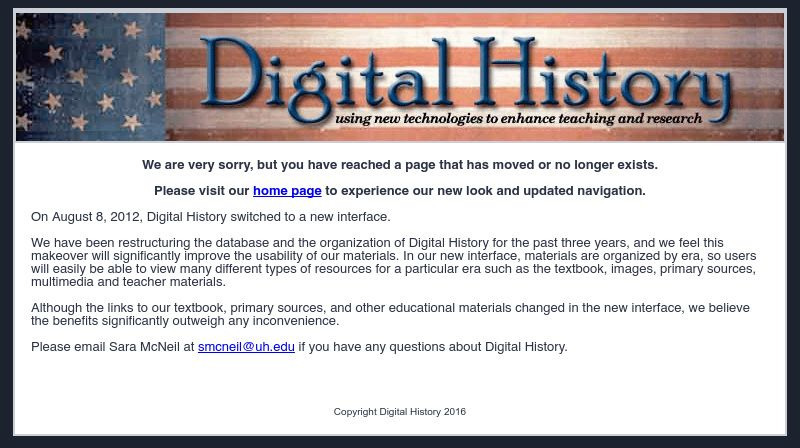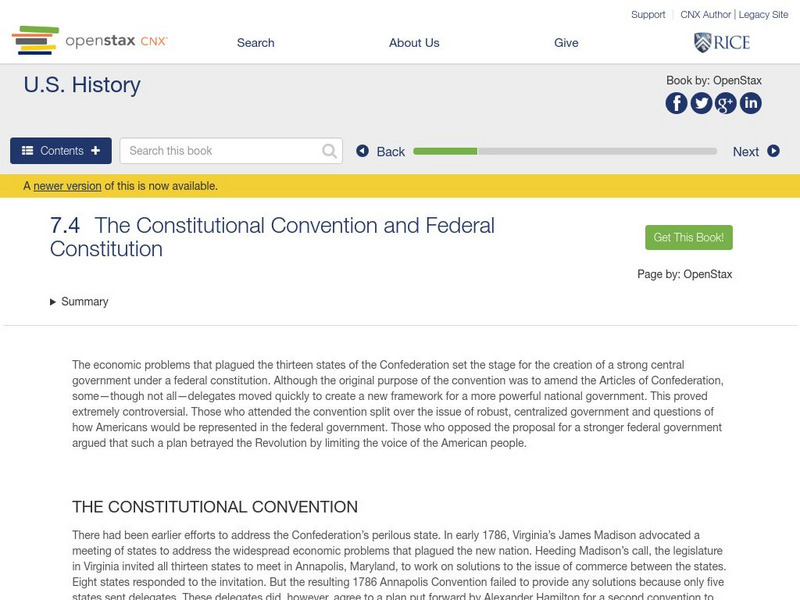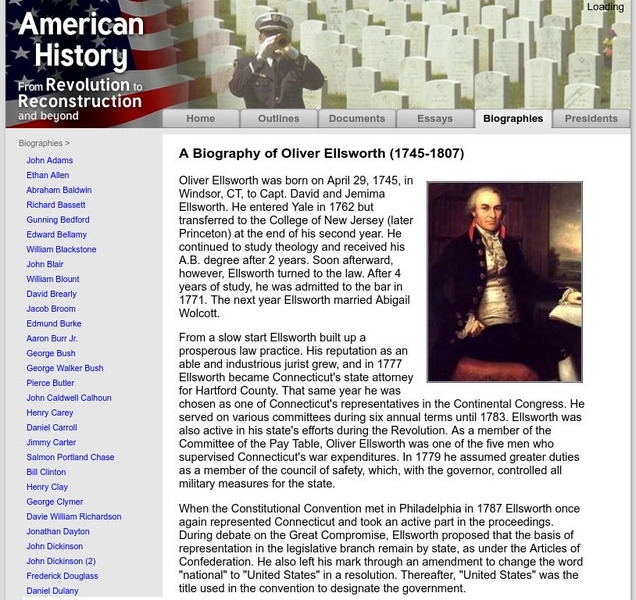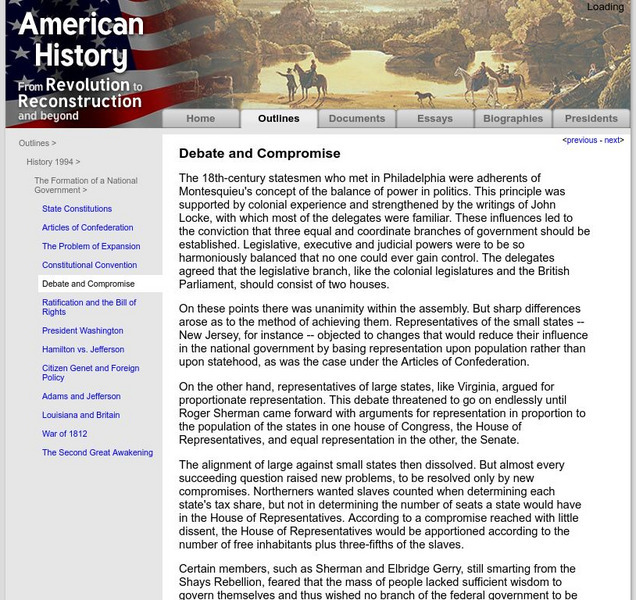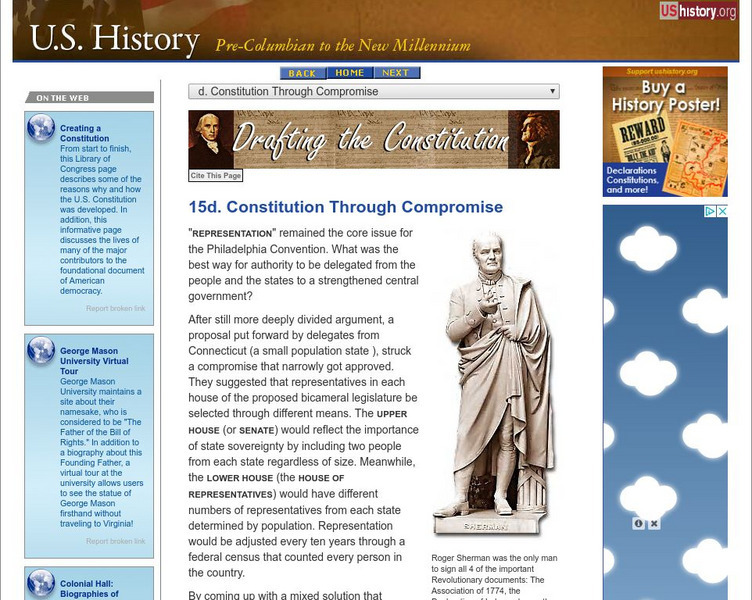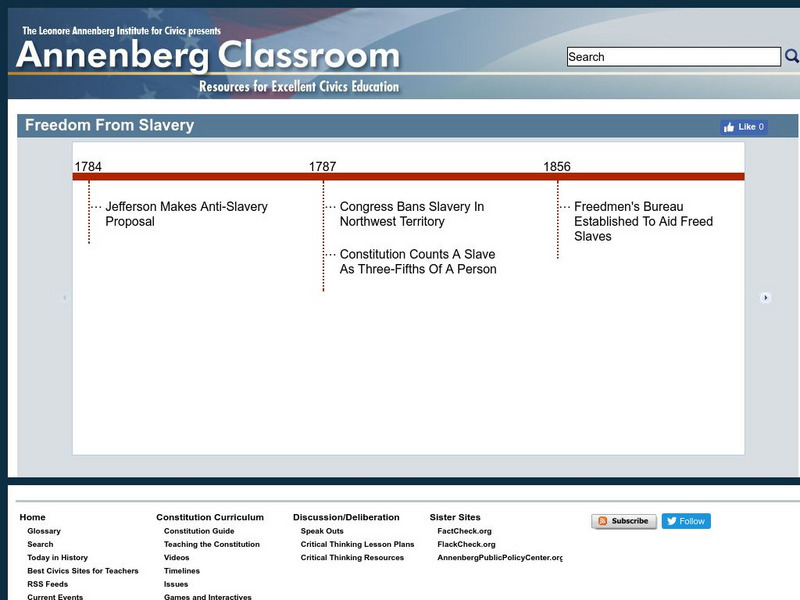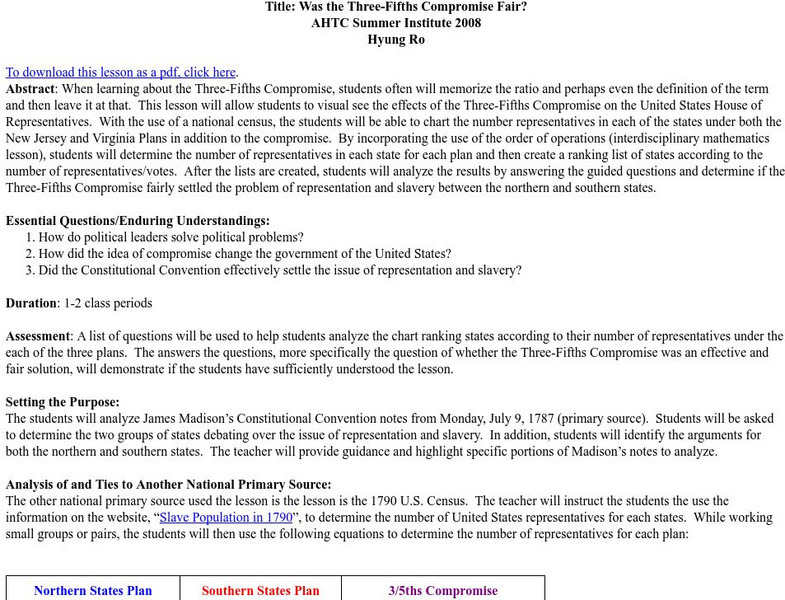Curated OER
Creating the Constitution
Useful as a review assignment or as a quiz, these ten questions on the U.S. Constitution address its creation. Thomas Jefferson, John Adams, and Ben Franklin are the main topics of the questions, as well as The Three-Fifths Compromise.
Digital History
Digital History: The Constitution and Slavery
The issue of slavery was a contentious one during debates in the Constitutional Convention. Read about the various issues, the quotes of several of the delegates, and see how the word "slave" is not even mentioned in the Constitution....
University of Missouri
Exploring Constitutional Conflicts: Delegates to the Constitutional Convention: Connecticut
Information about Connecticut's delegates to the Constitutional Convention. Includes information on Oliver Ellsworth, a key supporter of the Great Compromise, as well as William Samuel Johnson and Roger Sherman.
OpenStax
Open Stax: The Constitutional Convention and Federal Constitution
After reading this section of the chapter on "Creating Republican Governments", students will be able to identify the central issues of the 1787 Constitutional Convention and their solutions and also describe the conflicts over the...
University of Groningen
American History: Biographies: Oliver Ellsworth (1745 1807)
Biography of Oliver Ellsworth who represented Connecticut in the Continental Congress and also was a promoter of the Connecticut Compromise.
University of Groningen
American History: Outlines: Debate and Compromise
The 18th-century statesmen who met in Philadelphia were adherents of Montesquieu's concept of the balance of power in politics. This principle was supported by colonial experience and strengthened by the writings of John Locke, with...
University of Groningen
American History: Outlines: The Debate About Slavery
Article outlines the issues of debate over slavery and the compromises made while writing the Constitution.
Digital History
Digital History: The Revolution of 1800
The election of 1800 was a revolution in a peaceful sense. Read about the election, how Thomas Jefferson became president, and the resulting 12th Amendment.
Independence Hall Association
U.s. History: Constitution Through Compromise
Read about how compromises were reached at the Philadelphia convention that dealt with issues between large and small states, and slave and free states. Take the quick quiz to assess knowledge about the writing of the Constitution.
Annenberg Foundation
Annenberg Classroom: Freedom From Slavery
Check out this interactive timeline of the history of freedom from slavery in the United States.
Constitutional Rights Foundation
Constitutional Rights Foundation: The Constitution and Slavery
Article and questions for discussion on the controveries surrounding slavery while writing the U.S. Constitution and forming a new U.S. government.
PBS
Pbs Teachers: u.s. Constitution and the Idea of Compromise (Lesson Plan)
In this lesson, examine many of the opposing viewpoints held by founding fathers as they considered various compromises that made the U.S. Constitution possible, including the three-fifths compromise made to placate slave-owning states.
Siteseen
Siteseen: Government and Constitution: The Three Fifths Compromise
The Three-Fifths Compromise that was presented at the Constitutional Convention resolved the issue of counting slaves towards the population in regards to representation in the House of Representatives.
Siteseen
Siteseen: Government and Constitution: Slave Trade Compromise
The Commerce and Slave Trade Compromise was reached at the Constitutional Convention by stating that Congress could not prohibit the slave trade until 1808, but that any imported slaves could be taxed.
Other
Urbana School District: Was the Three Fifths Compromise Fair?
How do political leaders solve political problems? This lesson is an example of how compromise is a vital part of our democracy. Learners will be able to visually see the effects of the Three-Fifths Compromise on the United States House...



